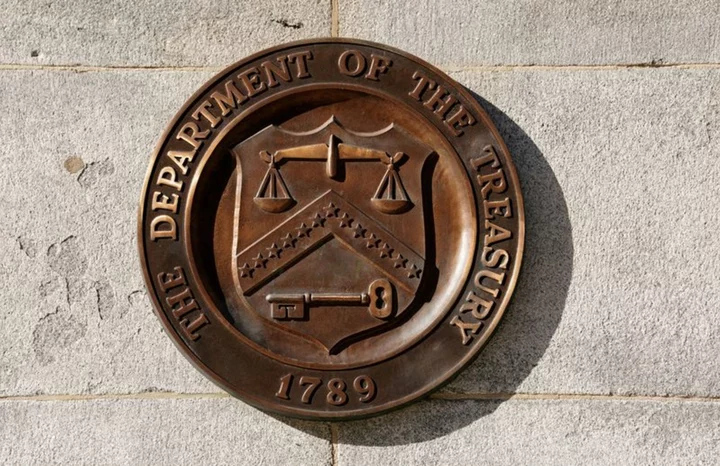By Andrea Shalal
WASHINGTON A senior U.S. Treasury official on Monday said there were signs of "potential improvement" in sovereign debt restructuring cases and more vulnerable countries were expected to seek help, but further work was needed to accelerate the process.
Treasury Assistant Secretary for International Finance Brent Neiman noted advances in the cases of Zambia, Ghana and Sri Lanka over the past year, along with development of new technical approaches, adding his hope that Ghana would reach agreement on its external restructuring in the coming weeks.
"We clearly haven’t gone far enough or fast enough and much more work remains," Neiman said in a speech at the Johns Hopkins School for Advanced International Studies.
"The critical test of any progress will be whether it is sustained when, as seems likely, more countries come forward requesting debt treatments," he said.
"But, I am hopeful that our recent efforts are yielding some movement toward an improved international debt architecture that can help low- and middle-income countries when they need it."
He gave no details on which countries might be ready to ask for help as long-stalled debt restructuring processes moved forward for Zambia, Ghana and others.
The Group of 20 major economies set up the Common Framework for debt relief for low-income countries during the COVID pandemic, but only two cases - Chad and Zambia - have completed the process, with Ethiopia's request still in work.
The glacial pace of progress on debt restructuring dampened interest among other countries, despite the fact that a majority of low-income countries are in or near debt distress.
Neiman said the focus that global leaders put on the issue had helped to elevate this topic toward the top of the international economic agenda. The Global Sovereign Debt Roundtable (GSDR) has brought together borrowers, official and private sector lenders and international institutions to help agree on common terms and treatments.
Roundtable participants have discussed state-contingent debt instruments (SCDIs) which helped advance Zambia's restructuring and Neiman said these can be helpful when creditors disagree on a borrower's future prospects, such as differences in the outlook for oil prices for an oil exporting debtor country.
These securities are designed to pay more interest when growth is higher or prices of key commodities increase, or they can reduce interest payments if there is an extreme weather event or other natural disaster.
"Since SCDIs can automatically lower debt repayments in times of economic stress, the hope is that they can reduce the need for debt treatments in the first place," Neiman said.
Restructuring domestic debt also can help smooth the process for external debt restructuring efforts, as in the case of Ghana, Neiman said. But a simple insistence for comparable treatment between domestic and external debt - with the same reduction in net present value - could impose particularly large economic costs for domestic debt holders, including banks in the debtor country holding the debt, and is not always workable.
"We hope that a simple insistence on achieving comparability of treatment between domestic and external debt will not in the future hold up any restructuring cases," Neiman said.
(Reporting by Andrea Shalal; Additional reporting by David Lawder; Editing by Andrea Ricci)

